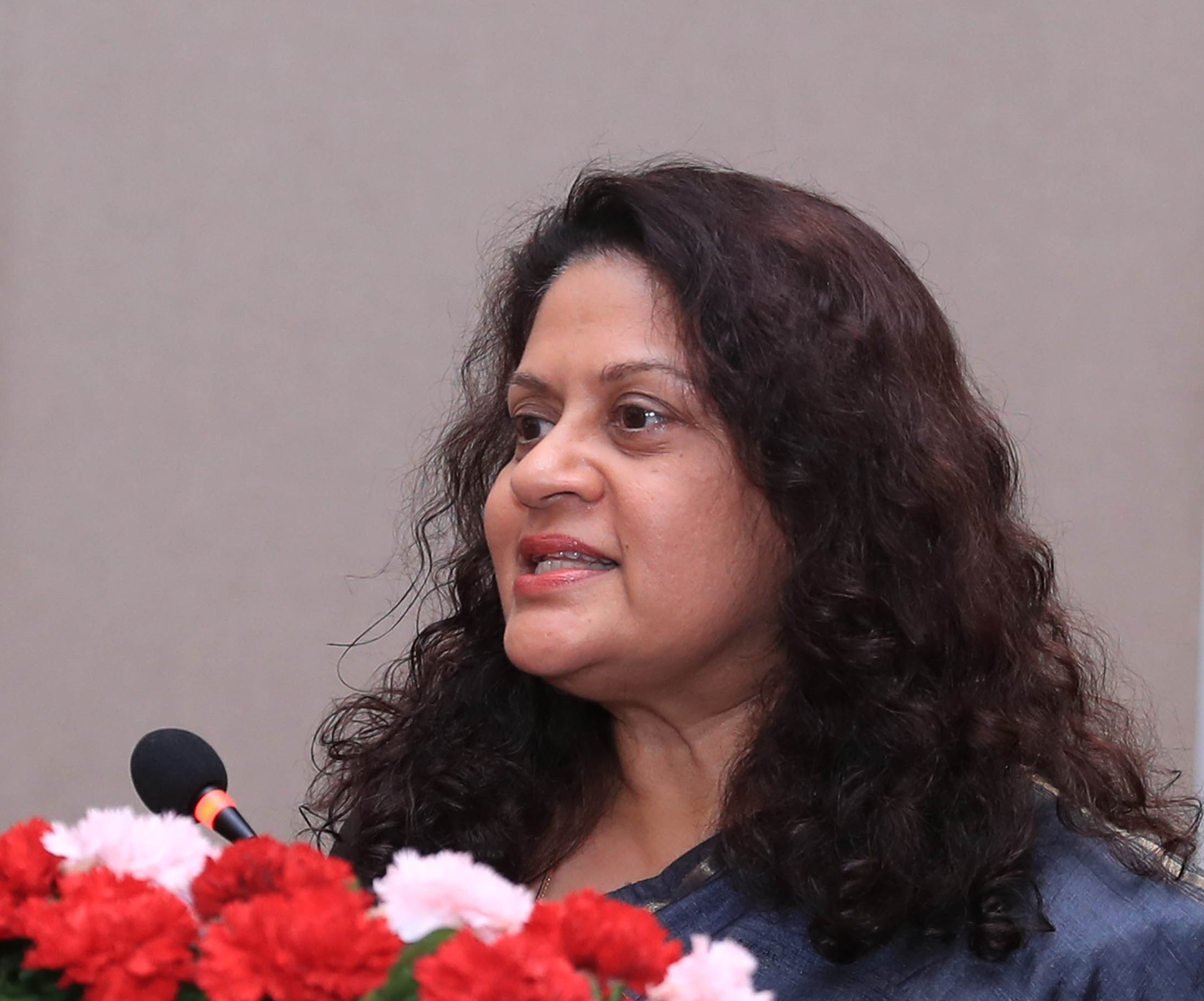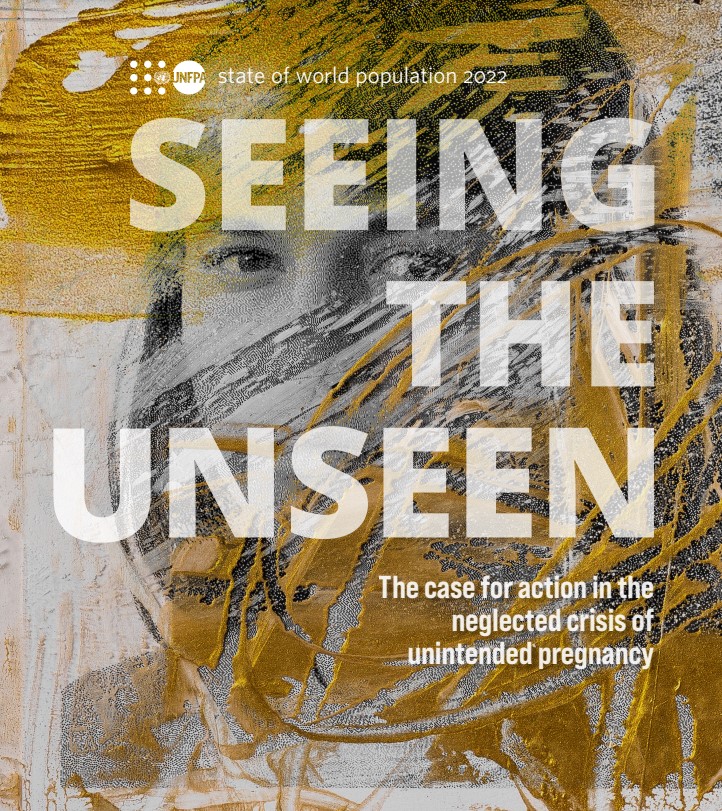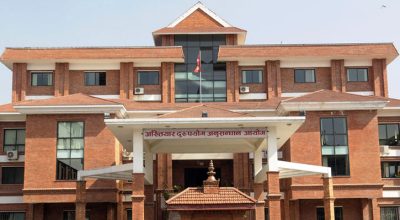
KATHMANDU: Nearly half of all pregnancies, totalling 121 million each year throughout the world, are unintended. For the women and girls affected, the most life-altering reproductive choice—whether or not to become pregnant—is no choice at all, explains the State of World Population 2022 report, released on Wednesday by UNFPA, the United Nations sexual and reproductive health agency.
The report, “Seeing the Unseen: The case for action in the neglected crisis of unintended pregnancy,” warns that this human rights crisis has profound consequences for societies, women and girls and global health. Over 60 per cent of unintended pregnancies end in abortion and an estimated 45 per cent of all abortions are unsafe, causing 5 – 13 per cent of all maternal deaths, thereby having a major impact on
the world’s ability to reach the Sustainable Development Goals.
In 2017, it was estimated that half of the 1.2 million pregnancies in Nepal were unintended and nearly 359,000 ended in abortion. Despite the legalization of abortion in Nepal, which contributed significantly to a decline in maternal mortality, the majority of abortions continued to be provided by untrained providers or induced by pregnant women themselves. Many women and girls still face considerable structural and informal barriers to accessing safe abortion services in Nepal.
“This report is a wakeup call. The staggering number of unintended pregnancies represents a global failure to uphold women and girls’ basic human rights,” says UNFPA Executive Director Dr. Natalia Kanem, “by putting the power to make this most fundamental decision squarely in the hands of women and girls, societies can ensure that motherhood is an aspiration and not an inevitability.”
Globally, an estimated 257 million women who want to avoid pregnancy are not using safe, modern methods of contraception, and where data is available, nearly a quarter of all women are not able to say no to sex. An unintended pregnancy is not necessarily a personal failure and may be due to the lack of autonomy society allows or the value placed on women’s lives.
The 2030 Sustainable Development Goals recognize women’s bodily autonomy and gender equality, and the importance of women’s ability to make informed decisions about sexual relations, contraception and reproductive health care. When an estimated half of all pregnancies are not by choice, it gives us an alarming picture of the state of neglect of women’s reproductive freedom.
- Globally, an estimated 257 million women who want to avoid pregnancy are not using safe, modern methods of contraception
- In 2017, nearly half of the 1.2 million pregnancies each year in Nepal are unintended and close to two-third ended in abortion.
- About 44% of women of reproductive age who want to avoid a pregnancy are not using a modern contraceptive method in Nepal
- In Nepal, use of modern methods of contraception among married women of reproductive age stands at 43%, leading to high rates of unintended pregnancy and unsafe abortion. Half of contraceptive users discontinue use within 12 months.
- Gender norms that prevent women and girls from exercising their reproductive rights is a key factor causing alarming rates of unintended pregnancies
- Humanitarian emergencies including the impact of COVID-19 in Nepal create conditions for unintended pregnancies to climb further
“Our report reveals that rates of unintended pregnancy strongly correlate with gender inequality, with lower socioeconomic development, and with more restrictions on sexual and reproductive rights,” said UNFPA Executive Director Dr. Natalia Kanem launching the report globally, “unintended pregnancy costs billions of dollars in increased health system expenditures, and worse outcomes for future generations.”
In Nepal, most unintended pregnancies result from unmet need for modern contraception. About 44% of women of reproductive age (15–49 years) who want to avoid a pregnancy are not using a modern contraceptive method. Expanding contraceptive services benefits women and their families. It has been estimated that for every additional dollar spent on expanding modern contraceptive use, Nepal would save $2 on maternal and newborn care due to fewer unintended births, induced abortions and maternal deaths.

“The Government of Nepal has an obligation to protect and fulfill rights related to women’s sexual and reproductive health. This means ensuring access to modern methods of contraception so that women have a choice”, said Lubna Baqi, UNFPA Country Representative. “Yet Nepal is still reliant on external development partners, including UNFPA, to provide support for family planning commodities. Contraceptives saves lives and it is time that the Government allocates the necessary financing to fulfill this fundamental human right, in line with the constitution of Nepal and Right to Safe Motherhood and Reproductive Health Act”.
“The perception among some policy makers that investing in family planning is no longer necessary due to the decline is fertility in Nepal is very concerning as it does not take into account the high levels of unmet need for family planning, which currently stands at 24%,
and the high rates of unintended pregnancies and unsafe abortions that take place because the gaps in services. The situation is worse for women and girls from disadvantaged groups, who face significant barriers including discrimination in accessing
information and services”.
Adolescent girls are particularly vulnerable. Child marriage is still high in Nepal, with nearly 41% of adolescents married before age of 18. Half of all pregnancies among adolescents are estimated to be unintended. This is due to the very low contraceptive use among married adolescents at just 23% compared to the national average of 43%.
Married adolescent girls often become mothers at an early age due to family pressure to have children. This places them and their children at significantly greater risk of death and injury.
The responsibility to act
The report shows how easily the most fundamental rights of women and girls are pushed to the backburner in times of peace and in the midst of crisis. It calls on decision-makers and health systems to prioritize the prevention of unintended pregnancies by improving the accessibility, acceptability, quality and variety of contraception and greatly expanding quality sexual and reproductive health care and information.
It urges policy makers, community leaders and all individuals to empower women and girls to make affirmative decisions about sex, contraception and motherhood, and to foster societies that recognize the full worth of women and girls. If they do, women and
girls will be able to contribute fully to society, and will have the tools, information and power to make this fundamental choice—to have children, or not—for themselves.











